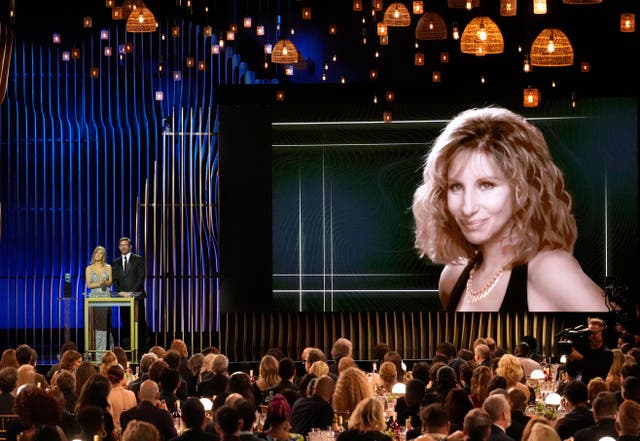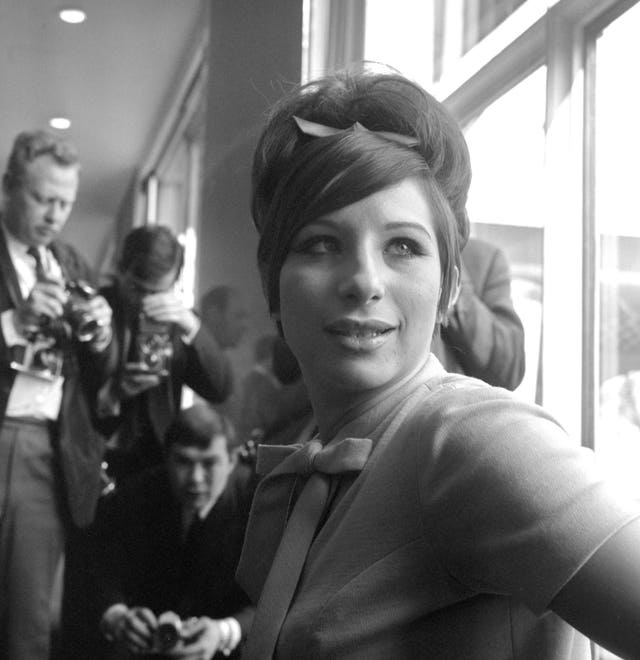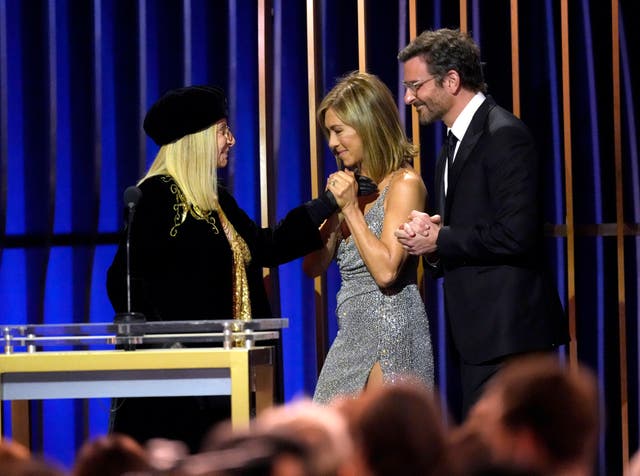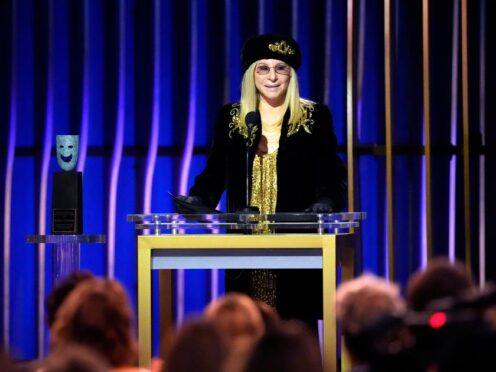Barbra Streisand said she dreams prejudice becomes a “thing of the past” in a nod to the rise of global antisemitism, during a speech at the Screen Actors Guild (SAG) Awards.
The musical star, actress, writer and director received a standing ovation as she was presented with the life achievement award by Jennifer Aniston and Bradley Cooper, prompting tears from stars including Meryl Streep and Anne Hathaway.
From Broadway to the big screen, Streisand is one of the biggest-selling recording artists of all time, and one of a handful of performers to have achieved EGOT status; a term for a select group of stars who have received at least one Emmy, Grammy, Oscar and Tony award during their career.

“It’s really a privilege to be part of this profession, for a couple of hours, people can sit in a theatre and escape their own troubles. What an idea — moving pictures on a screen,” Streisand said.
The 81-year-old said she “can’t help but think back” to the people who built the industry, including the man who changed his name to Samuel Goldwyn; Lazar Meir, who became Louis B Mayer; and the four Eichelbaum brothers, who became the Warner Brothers.
“They were all fleeing the prejudice they faced in Eastern Europe simply because of their religion,” Streisand said, in a nod to the rise of antisemitism.
“And they were dreamers too, like all of us here tonight. And now I dream of a world where such prejudice is a thing of the past.”
The screen and stage star was honoured for her philanthropic work, advocating for many causes from women’s rights to the protection of the environment, as well as her success as an actress, singer, writer and filmmaker.

Her breakout performance came with the musical and film versions of Funny Girl, which scored her an Oscar for best actress in 1969. She won her second Oscar eight years later for best original song titled Evergreen from the 1976 film A Star Is Born.
During her acceptance speech, Streisand said she was very lucky to have “two brilliant men” director William Wyler, and his cinematographer, Harry Stradling on the set of Funny Girl who “had no problem with a young woman who had opinions”.
She said: “I could suggest ideas for a scene to Willie and try various lighting effects with Harry, and they never, ever put me down. Looking back, they were really ahead of their time, and that was fantastic, and it set the tone for my whole career, actually.”
Streisand went on to direct, produce, write and star in 1983’s Yentl, and later became the first woman to win a Golden Globe Award for best director.
She has also won a host of Emmys, Grammys, Golden Globes and a Tony across her lifetime.

Among her musical accolades, Streisand earned the Grammy for album of the year in 1963 and received a lifetime achievement award in 1995 from the Recording Academy.
“Barbra, that’s all you have to say and you know right away; that face, that voice, that talent. It is a once-in-a-lifetime talent, and how lucky that it is in our lifetime,” lifetime Streisand fan Aniston said in her opening tribute.
Aniston said Streisand didn’t clear a path but “bulldozed a clearing” for women in the industry.
“That make-believe world was much more pleasant than anything I was experiencing. I didn’t like reality,” Streisand added.
“I wanted to be in the movies, even though I knew I didn’t look like the other women on the screen. My mother said, ‘You better learn to type’, but I didn’t listen and somehow, some way, thank you, God, it all came true.”
During her career, Streisand has also been awarded the National Medal of Arts from President Bill Clinton and America’s highest civilian honour – the Presidential Medal of Freedom – from President Barack Obama.
The SAG Award comes months after Streisand published an almost 1,000-page memoir titled My Name Is Barbra, which chronicles her rise from working-class Brooklyn to global fame.
